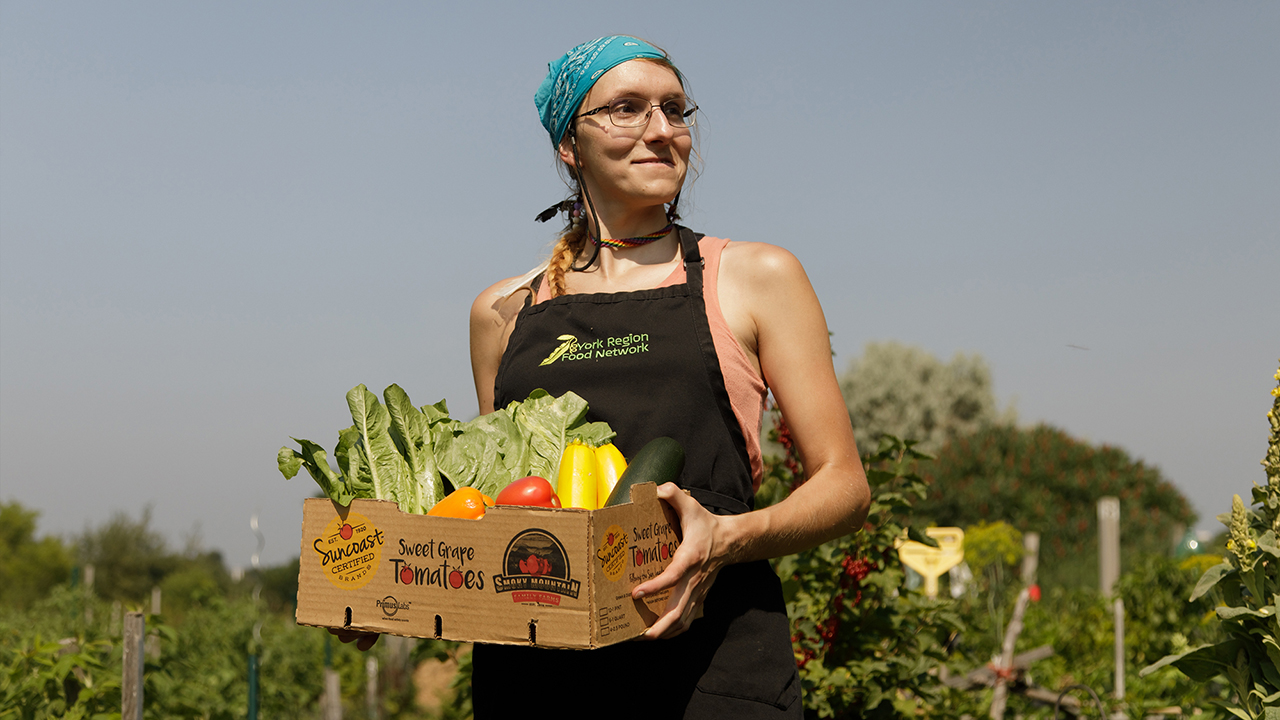
United Way is supporting access to food security, belonging and dignity so no one has to face hunger alone. Any way we can.
When Anna arrived in Canada in 2014 as a refugee fleeing 2SLGBTQIA+ persecution, she carried the hope of a safer future — but not much else. She was alone in a new country with an undiagnosed mental illness, dealing with isolation, addiction and poverty.
“It was very harrowing,” she recalls. “I had to restart my life from scratch, which felt impossible.”
Housing was her first concern, but food quickly became another. Once she was granted refugee status and started receiving support through Ontario Disability Support Program (ODSP), most of her income went straight to rent.
“It was a razor’s edge,” she says. “At the end of the month, I had maybe $50 left. I couldn’t afford food.”
That’s when she found York Region Food Network (YRFN), an agency funded by United Way. What started as a free breakfast soon became a lifeline — a place of support, belonging and purpose.
Real solutions for rising food needs
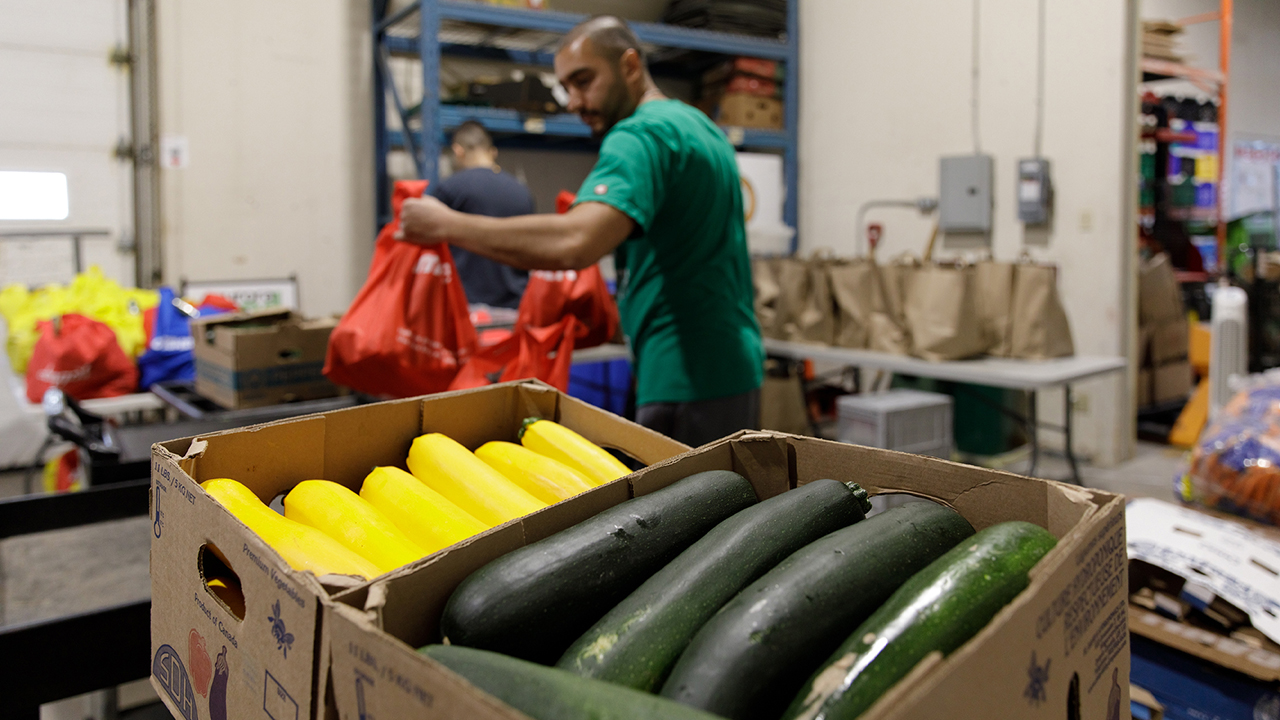
Anna’s struggle reflects a growing crisis. With 60% of Ontario renters cutting back on food so they can pay their rent, more people in the GTA are being pushed into food insecurity. That’s unacceptable in a region as prosperous as ours.
United Way Greater Toronto is meeting urgent needs on the ground while creating long-term resilience. Across Peel, Toronto and York Region, we invest in 23 food programs — championing everything from programs delivering food to seniors and people living with disabilities, to culturally relevant cooking classes and mobile food pantries that connect people living in food deserts with groceries.
Programs like these don’t just fill fridges. They create dignity, connection and stability at a time when many people are struggling to stay afloat.
Finding food and community
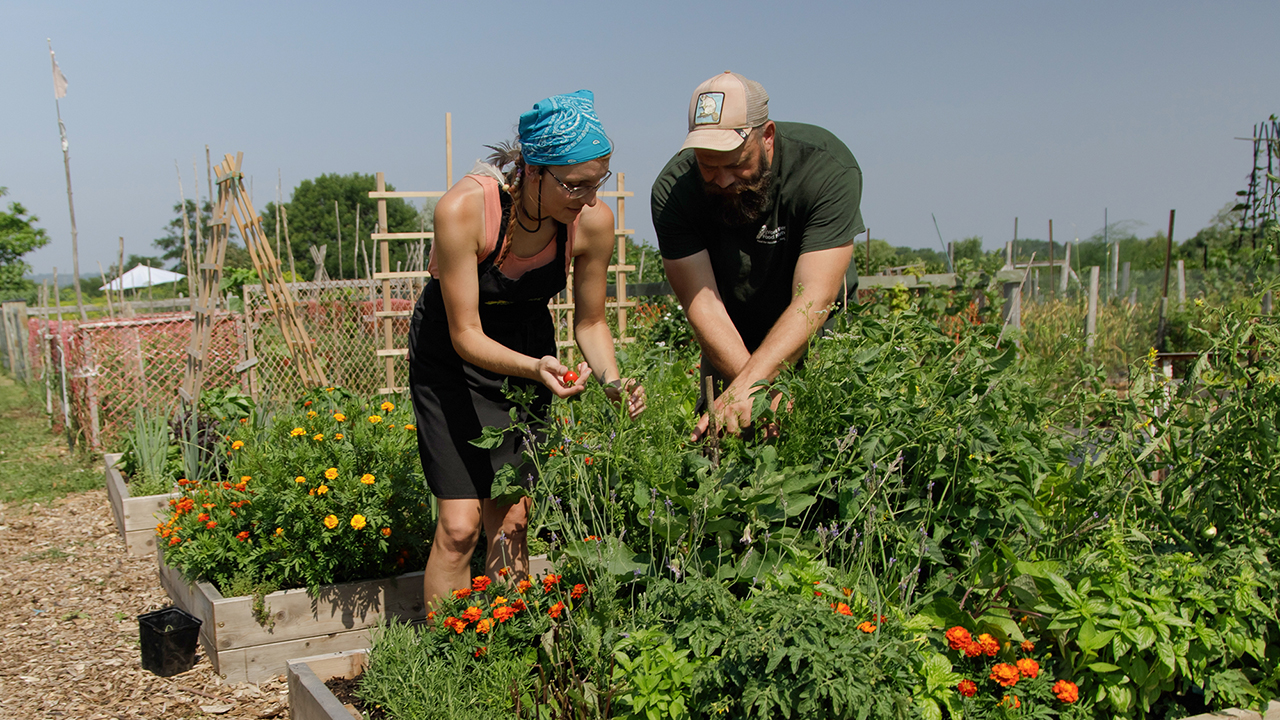
At YRFN, Anna discovered Seeds for Change, a United Way-funded program offering community gardens, food literacy and cooking programs to anyone experiencing food insecurity. YRFN runs gardens at five locations across York Region, along with multiple affordable, easily accessible food markets.
“Thanks to the program, I can look at my pantry or the fridge and figure out what I can make with what I have,” Anna says. “The most important thing for me is that participating in the program has really helped me build a community here.”
When Anna walks into the community kitchen these days, it’s bustling. The smell of simmering tomatoes, garlic and spices fills the air as volunteers prepare lunch together. Everyone has a role, and everyone is welcome.
Outside, Anna tends her own garden plot with her partner — rows of tomatoes, potatoes and herbs. Around her, neighbours’ plots are overflowing with kale, beans, berries and bright, towering flowers.
“I’m renting and I don’t have outdoor space,” she says. “Having this garden gives me something permanent, something I can go to. It’s really satisfying — it calms my nerves and helps me stay in shape.”
Planting the seeds for long-term change
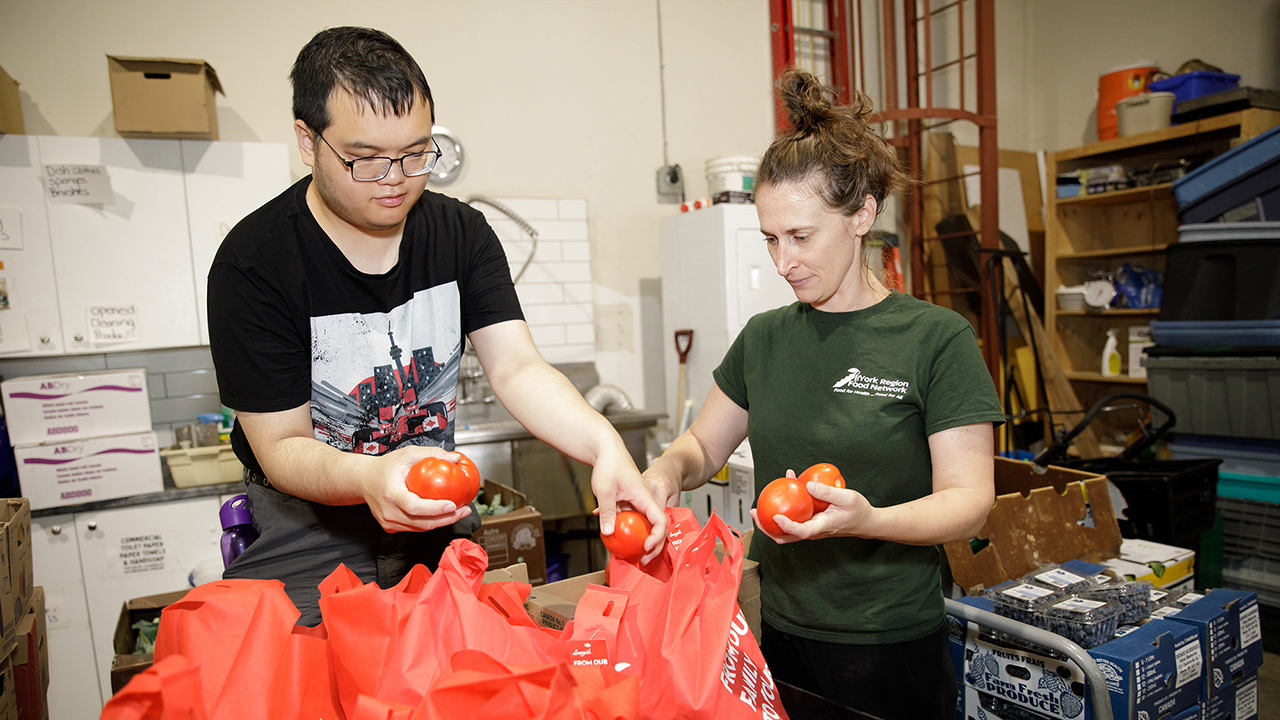
United Way’s commitment to food security in York goes back more than a decade. In 2013, we helped launch the York Region Food Charter and supported the creation of the York Region Food Council, led by YRFN, to bring together farmers, schools, social service agencies and community groups to address food insecurity in the region.
“In York Region, we’re seeing one in five people living with food insecurity,” explains Kate, York Region Food Network’s Executive Director. “We’re one organization working across nine different municipalities with a mix of rural, suburban and urban — all of which have really different needs.”
Kate emphasizes the importance of United Way’s multi-year funding, which gives organizations like hers stability in uncertain times and the ability to plan ahead and tackle systemic issues.
“United Way really encourages us to think beyond immediate services,” Kate says. “We can be progressive in how we’re supporting our community and addressing the root causes of poverty.”
A safe place to land and grow
For Anna, the program offered something other than food, but just as essential: a third space.
“Here in Aurora, there aren’t many places to go outside of work or school,” she says. “After seeing the same people every week, I got more comfortable as I got to know them. Nowadays, we all help each other out.”
Kate sees this every day. “It’s about creating community spaces where people meet others,” she says. “The greatest feeling for me is seeing a group of community members of all different ages, backgrounds and languages, smiling and laughing together.”
People thrive when they can access community and support, close to home, and United Way is working to expand that sense of belonging. In the next decade, we plan to open 10 new Community Hubs across Peel, Toronto and York Region — spaces where people can come together for support, resources and connection, all of which are essential for social, mental and physical wellbeing.
From participant to leader
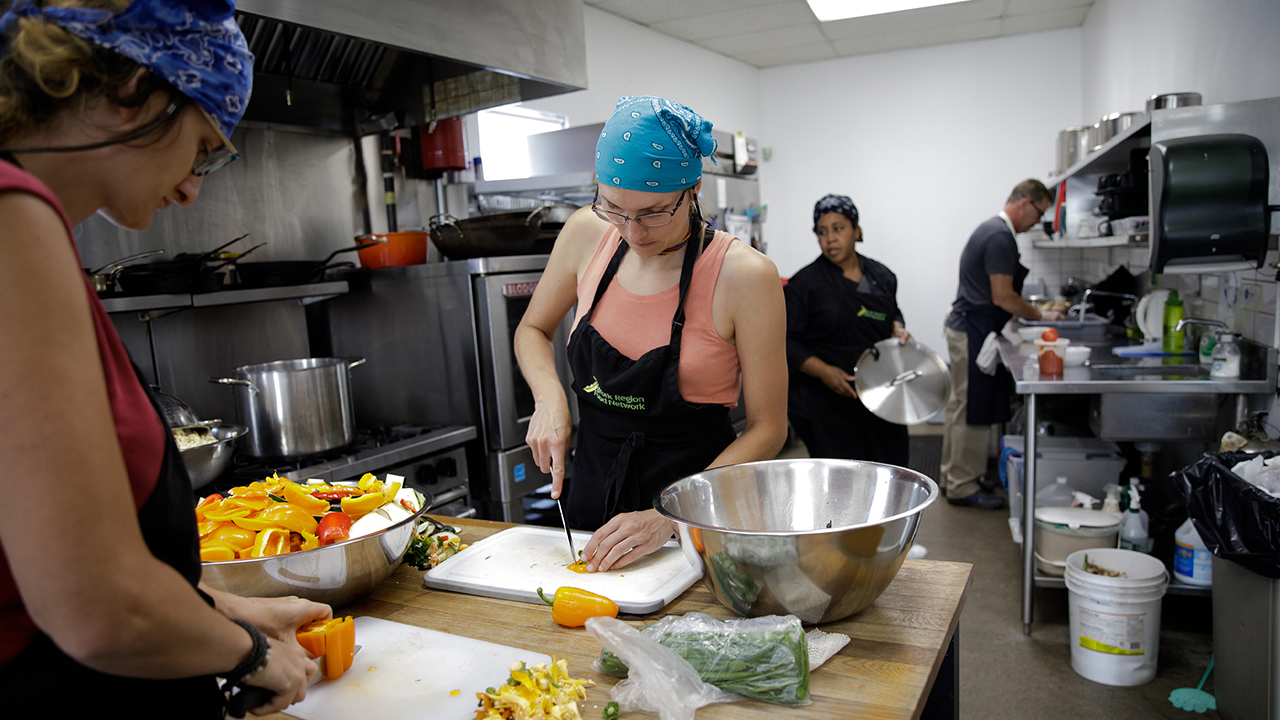
Anna now volunteers at YRFN, helping with everything from garden upkeep to making meals for hospice patients and their caregivers.
“To go from being a participant to a volunteer is empowering,” she says. “I tend to struggle with self-esteem, so I’m grateful there are ways I can give back.”
Kate has seen how Anna has blossomed over the years, bringing her unique insight and experience to the benefit of everyone she connects with.
“Anna’s been taking such a leadership role in volunteering in our programs,” she says. “She’s constantly learning, sharing her knowledge and inspiring us to think about different programming and workshop ideas.”
We fight hunger at the roots, not just at the table
No one should go hungry. But more than that, everyone deserves to build a good life, one with financial security, strong relationships and a true sense of belonging.
That’s why United Way is determined to do whatever it takes to fight food insecurity — from connecting people to food pantries and strengthening urban agriculture to building community spaces where people can eat together and bringing partners together to work on local solutions. We won’t stop until we make that vision for the GTA a reality, and everyone has what they need to build a good life. Any way we can.
For Anna, food has been essential on her path to healing — physically, emotionally and socially.
“Growing and making food has given me so much value,” she says. “Food is culture: it brings people together and helps people live, share and build community.”